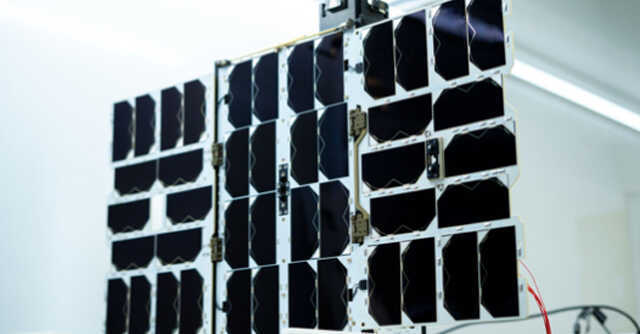
Pixxel launches its first satellite aboard SpaceX, to launch seven more by March 2023


Indian space-tech startup Pixxel has launched its first satellite, part of its eventual 36-satellite planned constellation, aboard a SpaceX Falcon 9 rideshare mission. The satellite was incidentally the second that Pixxel built, and is a part of the first three technology demonstration satellites in its constellation. Called ‘Shakuntala’, the satellite will help Pixxel begin its hyperspectral satellite imagery and satellite-based data analytics services to pilot customers.
Awais Ahmed, chief executive of Pixxel, told Mint that the startup will now look to complete its second launch of its first technology demonstrator satellite, called Anand, aboard an upcoming mission with the Indian Space Research Organisation (Isro). The latter is expected to launch India’s Earth Observation Satellite (Eos)-6, part of the Indian Oceansat programme, in the coming months.
Eos-6 will be the primary payload aboard Isro’s Polar Satellite Launch Vehicle (PSLV), with Pixxel’s Anand satellite being one of the mission’s two secondary payloads. However, with the Oceansat mission working on a delayed timeline, the Eos-6 launch may miss its April 2022 launch window.

Hyperspectral imaging and remote sensing refers to the capturing and processing of a significantly wider range of wavelengths, allowing satellite imagery to process greater amounts of terrestrial data.
Ahmed said that after its launch, the satellite will take about an hour to be deployed in a low-Earth orbit. “The orbit is about 520km above Earth. For the next two weeks after deployment, we will carry out technical tests to ensure that everything is in order. About a month later, from around May, we will start offering some amounts of data to our clients to demonstrate the abilities of our services,” he added.
Ahmed further confirmed that after the two launches in 2022, Pixxel will look to complete six launches in the first quarter of 2023. This will be followed up by 12 further launches by the end of 2023, which should bring up the company’s entire constellation up to full performance capability.

Pixxel recently raised $25 million as part of its Series-A funding, which it will use to further build its entire constellation.
